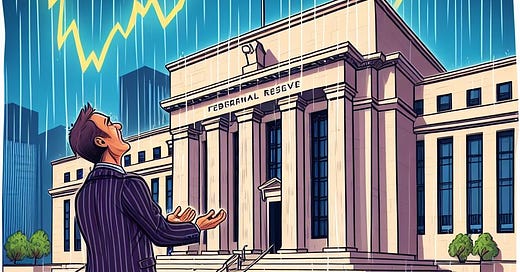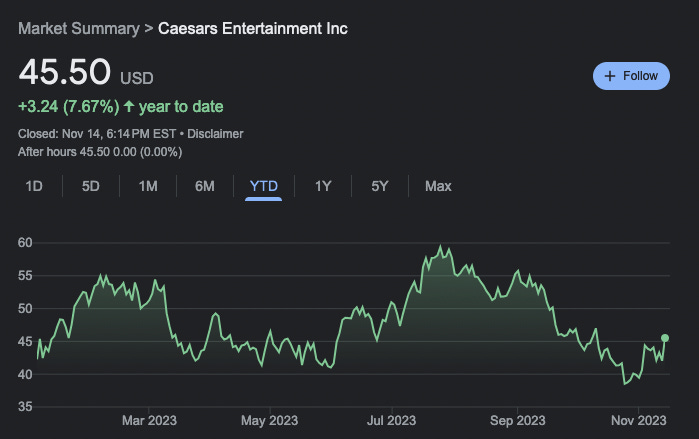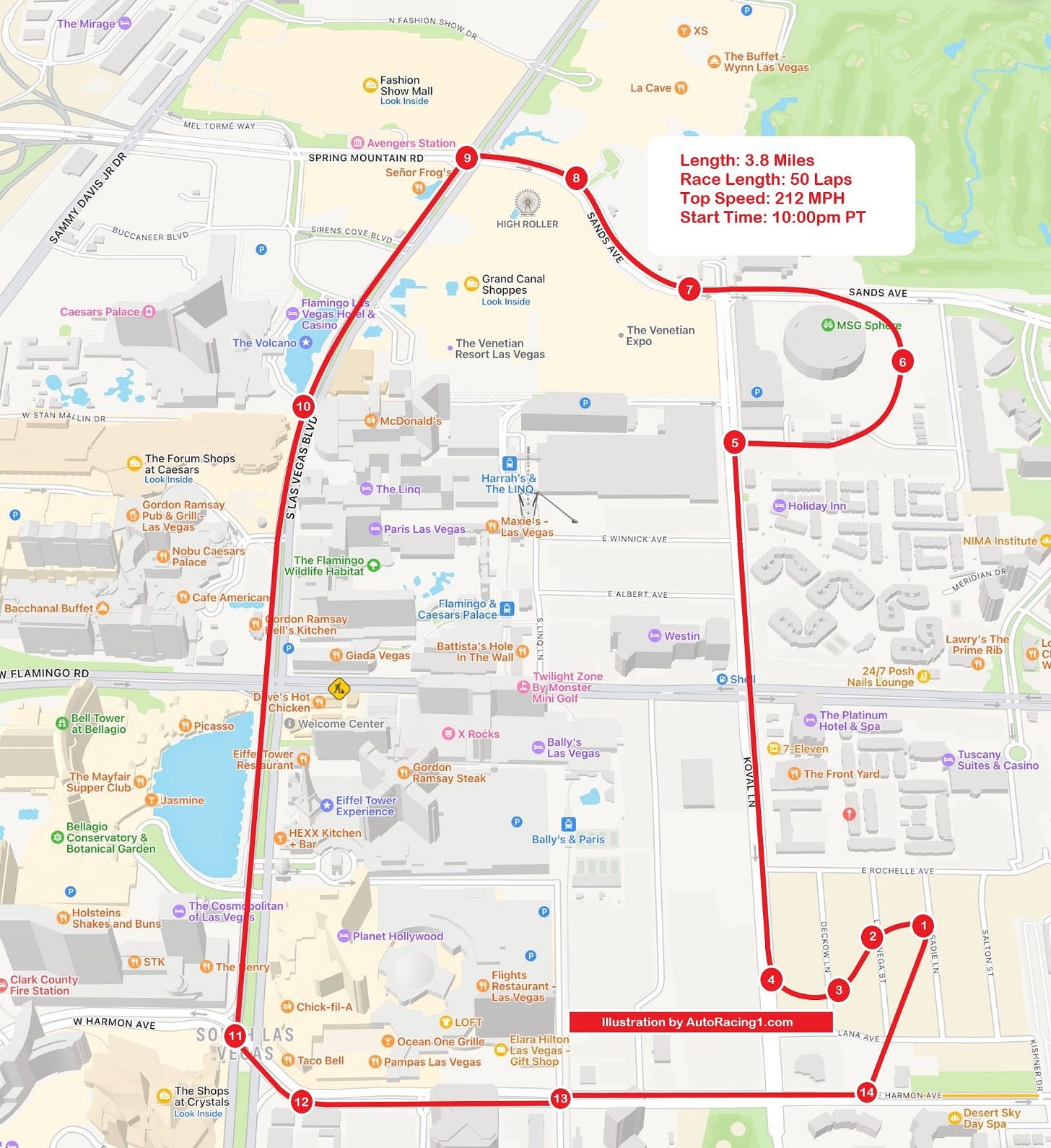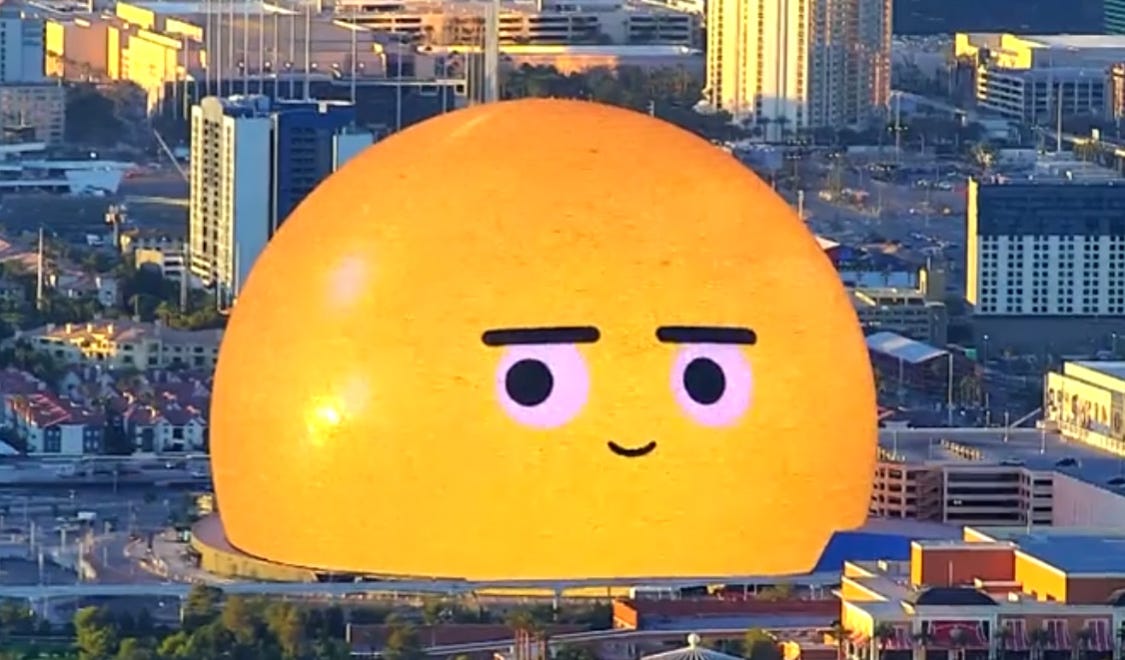The hardest thing to do when experiencing unprecedented success might actually be to stop (and maybe smell the roses.) Jeff Bezos seems to be the only psychotic businessman to ever actually step away and enjoy his life after spending decades building the behemoth that is Amazon. The Beatles, albeit involuntarily, famously stopped making music together thereby preserving the near-perfection of their discography (though this got a reboot as well) instead of going the ignominious route of Kanye West.
Alas, localities do not have the luxury of picking a convenient endpoint. They go through the best of times, they go through the worst of times. To the tangentially aware, the allure of Las Vegas and “the Strip” in one’s imagination is almost mythical, what with fights at the MGM Grand, the World Series of Poker, and hanging out at penthouse suites at Caesar’s Palace while Mike Tyson punches you. To the proximally aware, however, a different picture starts to emerge. Having been in and out of Vegas throughout my life, I remember being given “stripper cards” while walking between hotels to play a chess tournament as a child, extreme price gouging when doing anything other than gambling, a mirage of friendliness that extended as long as I had chips down on the table, whatever the whole “Vegas location” thing is, and a lot of stories that I’m certainly not going to send out in an email. My own travels and the pandemic confirmed the reality that beyond 2020, the high-flying locations of the casino world were on the other side of oceans — I can assure you that nobody I sat down with in the Marina Bay Sands was from Barstow, California. The reality is that modern-day Vegas is not exactly fool’s gold, but it’s not much more than surface-level gold plating over an extremely seedy underbelly either.
The one thing that Strip businesses do have going for them in spades is one of the strongest regulatory moats on the planet. They can’t be competed with, they have the right to refuse any winning player, and they can claw back winnings even when their own due diligence on playing conditions wasn’t good enough (as seen in the whole Phil Ivey thing.) Although the legalization of sports betting has shifted the rat race towards mobile gaming and both the casino groups and the underlying real estate owners have heavily consolidated, there is still the fact that slot machines absolutely print money; in fact, that’s where most casino revenue comes from:
Casinos across Nevada brought in $14.8 billion in gambling revenue in 2022—a new annual record, according to the Nevada Gaming Control Board…
Slot machines, the casino cash cow, generated $10 billion in revenue last year across Nevada. Slot revenue made up 67.4% of total gaming win. Penny slots generated 9.8% of total slot win with $3.59 billion. Table games, at the same time, set an annual revenue record for the category with $4.83 billion, a 15.3% jump in 2022 compared to 2021.
Even though economic headwinds are far stronger looking forward, “this thing of theirs” is recession proof, to some extent.
Though the raw businesses keep churning along, there’s not much glamour in older people
Mr. Reeg, the chief executive, said that the 55-and-older crowd is coming back to Las Vegas stronger than at any time since the pandemic began and group event bookings are improving. Looking ahead, hotel bookings have picked up in the past few weeks, he said.
“The consumer continues to hold out quite well for us,” he said.
Jeremy Aguero, principal analyst with Las Vegas-based economic research firm Applied Analysis, said the city continues to benefit from consumers’ desire to travel after the pandemic shutdowns, and consumers have had savings and federal stimulus money to pay for vacations. “Las Vegas has also been a lower cost alternative, in many ways, for folks that were looking for a foreign escape,” Mr. Aguero said.
shoveling money away because the pandemic robbed them of a couple years to travel. Nor does nickel-and-diming people by squeezing every last penny out of the odds offered seem sustainable:
Some Las Vegas casinos cut back the number of blackjack tables with dealers, raised minimum bets during busy times and lifted their advantage over players in some games—doubling-down on a prepandemic practice of making subtle changes that favor the house, according to industry executives, researchers and gamblers…
John and Kristina Mehaffey, owners of gambling-news and data company Vegas Advantage, have been cataloging these changes since 2011, walking miles-long routes through casinos to record the number of blackjack and roulette tables set outside of VIP areas.
According to the Mehaffeys’ data, more than two-thirds of blackjack tables on the Strip currently offer 6:5 payouts, as opposed to 3:2…
Payout levels aren’t always obvious at blackjack tables. At a table in the MGM Grand, for example, the 6:5 payout appeared in fine print that scrolled along the bottom of a small screen.
Gamblers playing the centuries-old game roulette must look closely from table to table to figure out their odds of winning. Triple-zero roulette, a version that leans in favor of the casino, is increasingly popping up on the Strip.
Triple zero roulette? Fuckin’ really?
Increasingly, Vegas seems to find itself at a crossroad beyond the 15 and the 11. Certainly, the moniker “Sin City” does not convey a black-tie affair, but the current driver of revenue does not project the intended glitz of, to use old banker parlance, “models and bottles.” To the credit of everyone involved, there are steps being taken to reclaim glory. They’ve absorbed a football team and a championship-winning hockey team along with every restaurant that was trendy a decade ago in New York, and it seems to be working given that the wait time for (FUCKING) Carbone is about a month with the only table availability being after 10 PM. But there’s a limit to how much you can lean into trends — as any NY club or restaurant owner knows, one day you’re trendy (hey, Kanye West rears his head again), and the next you’re shut down (though Spotted Pig was, er, not organically decommissioned.) And it seems that Vegas is pushing up against that limit:
With multimillion-dollar hospitality packages, exorbitant hotel rates and an initial average "get-in price" of about $2,000, this race was never about attracting new fans to the global motorsports series or growing the American audience. F1 owner Liberty Media clearly viewed a race in Las Vegas as an international showstopper for the highest of the high rollers.
Renee Wilm, CEO of the grand prix, vowed "we will be sold out by the time of the event" on a Nov. 3 earnings call by Formula One Group.
Well, the big race has finally arrived and tickets are still available, both directly and on a dramatically reduced secondary market. Hotel prices along the Strip have plummeted and all signs suggest first-time F1 race promoter Liberty appears to have grossly overshot the price point for drawing in new fans and spenders.
The pitch, clearly, was a race on the strip that was sanctioned and not going to result in reckless driving charges. But given what was talked about above, the monopolization of views by the casino groups, and the general dullness of the track (as stated by Max Verstappen himself), it’s not a surprise that the appeal was vastly overestimated:
According to TickPick, [the tickets ~ed.] have plunged 35% in the past month for the Saturday race, with the average “get-in” price dropping from $1,645 to $1,060 for grandstand seats. Tickets were priced at roughly $2,000 a year ago for the Las Vegas race.
Prices for practice on Thursday and qualifying races on Friday have also dropped dramatically. The current “get-in” price dropped about 50% from $385 to $180 for Thursday and on Friday, prices dropped nearly 60% from $825 to $342.
Ticket prices seem like a pretty good proxy for Vegas sentiment here — perhaps such naked gouging and manipulated hype is not the way to build authentic interest.
Of course, what would a post about Vegas be without mentioning the Sphere? While it certainly does seem like a novel concept, I don’t think U2 performances are quite targeting the demographic that makes Vegas itself cool again.
I don’t exactly think the “Ketamine is killing the dancefloor” crowd would particularly like the idea of being stuck in a big-ass sphere during a set either. Alas, what a great DJ D-Sol farewell show could have taken place!
While the pictures are funny to look at online,
it seems that things are turbulent in Sphere-land:
Gautam Ranji — who had worked as chief financial officer at Dolan’s $2.3 billion, high-tech venue in Las Vegas for just 11 months — resigned from his job last Monday, indicating his last day would be Friday…
…according to a source with knowledge, Ranji delivered his notice in the middle of a meeting with a handful of senior execs including Dolan, the bombastic owner of the Knicks.
The meeting had been called partly to prep for the company’s quarterly earnings presentation, which is slated for Wednesday, according to insiders. According to a source with knowledge, Dolan was “yelling and screaming” at Ranji, who in response “calmly” left the room and gave his notice to the company’s general counsel.
Tangentially, how was that earnings report, by the way?
The Sphere Entertainment Company said the arena’s opening brought in event-related revenues of $4.1 million, supplemented by $2.6 million from sponsorship and advertising….
The revenue was a fraction of its first quarter’s direct operating expenses, which totaled $7.8 million.
The breakdown of these expenses reveals $2.8 million in venue operating costs and $2.2 million in event-related expenditures, both directly tied to the Sphere’s operational debut.
Moreover, the direct operating costs encompassed $2.1 million related to advertising spending leading up to Darren Aronofsky’s October premiere of “Postcard from Earth,” the mainstay act at The Sphere Experience.
Honestly, the fact that they’re not reporting an “adjusted ebitda” is bullish. Out of all the New York rip-offs that exist in Vegas, this might be the one that actually improved on a concept — a ludicrous melding of Times Square and Radio City Music Hall that just might be the shock to the system it needed. Here’s looking at you, sphere.







